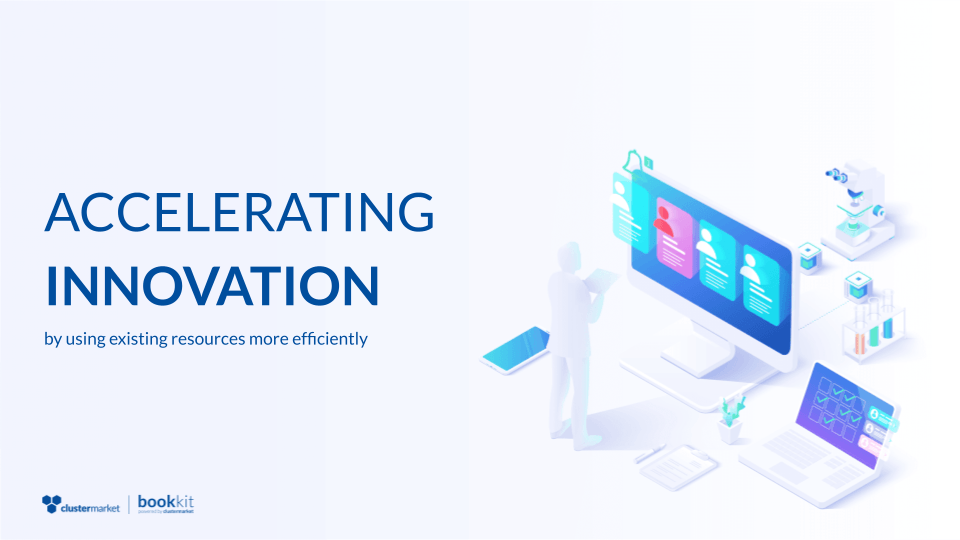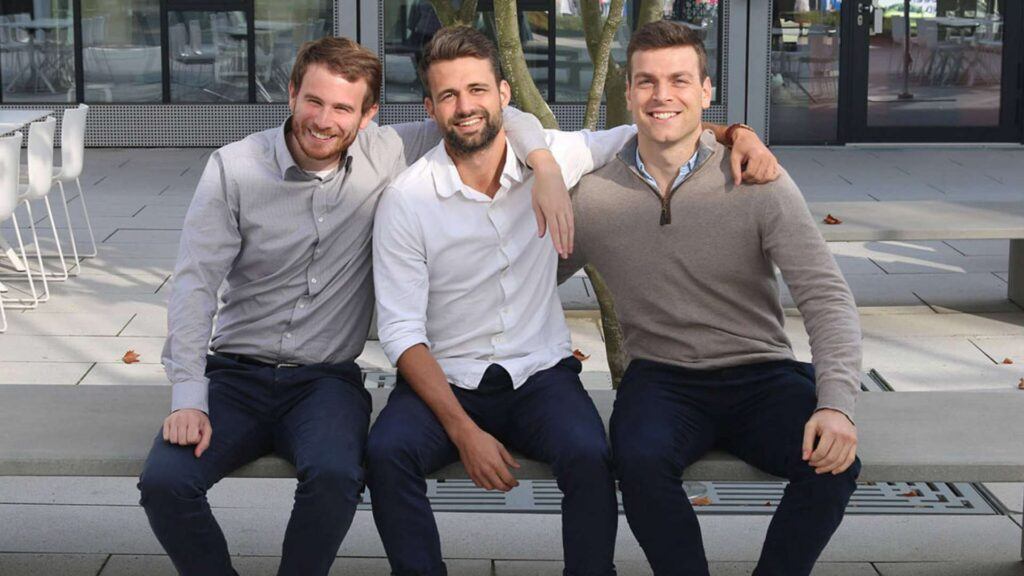
Company of the Month: Clustermarket
Founded in 2015 by three students studying for their Masters of International Business in London, Clustermarket aims to introduce transparency into life sciences labs worldwide. Their online marketplace allows researchers to share access to lab equipment and services, and their online booking software, Bookkit, allows lab managers to control access to labs more efficiently.
In light of COVID-19, the tool is now helping allow continuation of research in over 5,000 labs worldwide. We talked to Clustermarket Co-Founder and Head of Sales and Marketing, Tobias Wingbermuehle to find out more.
Genesis
The idea for Clustermarket was sparked when the three founders Niklas Friedberg, Tobias Wingbermuehle and Johannes Solzbach, listened to a guest lecture on frugal innovation. The key takeaway for them was that science clusters in the developed world can learn from principles adopted in the third world, where innovation has been achieved through more transparency and sharing of resources. The idea chimed especially with Tobias, whose previous background in sports science meant he had seen first-hand how expensive lab equipment and expertise is often under-utilised.
Tobias explains:
“The high cost of research equipment has traditionally always been a barrier for innovation in science. But in academia and small-to-medium sized commercial labs, there is plenty of willingness to share access to equipment and technical services. The issue has always been that there has been very little transparency and trust. It’s often very difficult to find out which equipment or services are available, and when. That’s what we wanted to open up.”
And so, the concept of Clustermarket was born, where a user can search for availability of a particular piece of equipment or service, and rent what they need, at the same time ensuring expensive equipment isn’t sitting idle.
Funding the prototype
Although Niklas had the technical know-how to begin coding their first prototype, they needed extra support to complete it. When the question of funding this arose, the three founders showed their commitment to the venture, and came up with a plan to self-fund completion of the prototype. Two of the three (Tobias and Niklas) returned to their native Germany for a year, working full-time in other roles, so they could split their combined salaries three ways and fund the remaining development work. Meanwhile, Johannes worked full time on the business, overseeing development and securing their first initial investment.
By the end of their first year, they were able to secure an additional €50k through the Merck Accelerator program, freeing all three up to focus full time on the business.
2017 saw the team with a complete prototype, and ready to seek angel investment. They pitched at one of MedCity’s first Angels in MedCity investment events, and were successful:
“We were very fortunate to find not only an investor, but also a mentor, at the MedCity Angels event. Shalabh Kumar invested, but also became a great mentor. He became our lead investor and Chairman of the Board, and he’s really helped guide us through the whole journey, so has been a real asset.”

Bookkit
The turning point for the company came in 2019, when they launched Bookkit, their lab booking system:
“In my past, I’ve experienced the frustration of needing to visit a lab in person for the sole purpose of booking a future lab slot. So, we were confident that we could improve on this experience, whilst also increasing transparency from the lab’s point of view, and driving our user engagement,” explains Tobias.
The team were correct. They experienced a positive reaction from the outset – enough to warrant rapid growth to the team, as they took on seven new full time staff members, as well as four interns, in September 2019.
Growth has only been accelerated since COVID-19 forced many labs to change their ways of working. The Bookkit software allows lab managers to control the numbers in the lab to achieve physical distancing, and allows lab users to book their slot remotely.
Since launching the product, they have seen 30% growth in users per month, bringing them to their current position with more than 50,000 users, and 5,000 labs registered.
Keys to success
When questioned on their keys to success, Tobias believes a few aspects have helped them along the way:
The team of three.
“I couldn’t do it alone. The entrepreneurial journey is such a roller coaster and you go through so many low stages, especially at the beginning. You have to be able to trust your cofounders blindly though, and the three of us have really pushed each other along.”
Setting goals.
“All along the way we’ve set ourselves goals and milestones. We were also very willing to tell ourselves it wasn’t working, if we didn’t hit our goals. None of us wanted to spend 10 years following a company that wasn’t progressing, but as it happened, we have hit all the goals and milestones we set so far.”
Taking advice.
“Our mentors have been really helpful to us along the way. We’ve tried to seek out advice from those more experienced than us throughout, whether that was in raising investment, sales, marketing or product development. As entrepreneurs starting our first business, we are bound to make mistakes along the way, but our mentors help us minimise those mistakes.”
The White City effect
Tobias also grants their base in White City with some of their success. In 2018 they were one of six startups to win a Scaleable Business Award, which gave them a year’s free office space in White City.
“Being in White City, the ‘show cluster’ for our ecosystem, has been key to our early success. It really provided a safe and vibrant environment where we could build relationships with academics and commercial labs of all sizes. There was also a real community of other startups we could learn from.”
Future plans
Next on the horizon, the team have their eye on the Internet of Things. They are piloting remote lab management solutions with various equipment manufacturers that would allow lab managers to remotely monitor different instruments in the lab and, of course, tie this in with demand for the equipment via their lab booking system. They also have plans to offer solutions through integrations of other research solutions, such as an electronic notebook, facilities for ordering consumables and maintenance scheduling, including the potential to incorporate machine learning to intelligently predict a user’s needs.
Giving back
Despite their relatively short time in business, the team have already found ways to invest in giving back to other start-ups. Initially funded through Clustermarket, but now spun out into its own entity, Tobias runs the not-for-profit Science Entrepreneurs Club. Helped along by a large team of volunteers, they produce written resources, workshops and events for scientists and innovators. In fact, MedCity will be contributing to their upcoming event on Biotech and Drug Discovery next month.
Find out more about Clustermarket and Bookkit